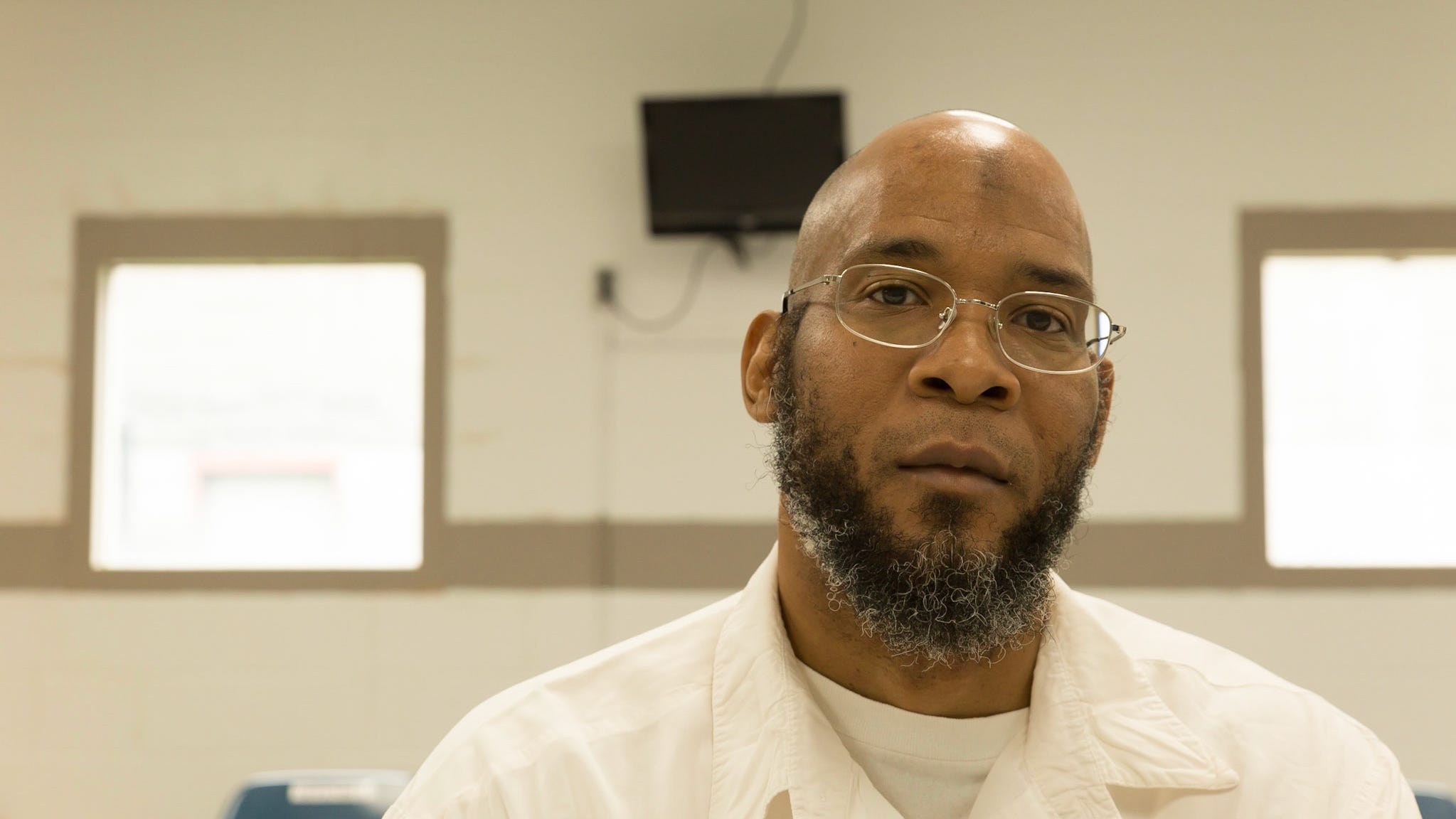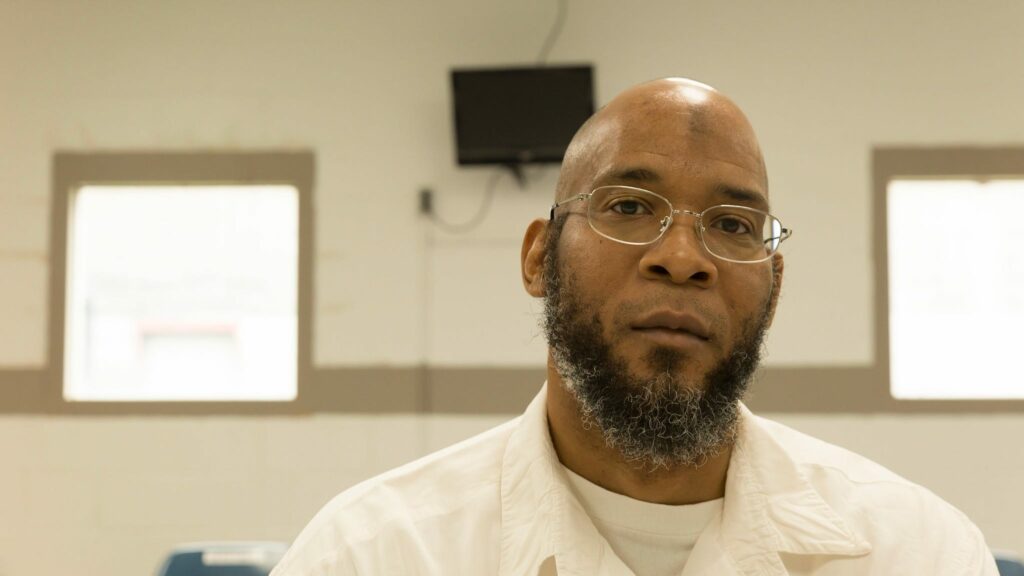
Missouri to execute Marcellus Williams, convicted of 1998 murder
Missouri Gov. Mike Parson, a Republican, and the Missouri Supreme Court denied clemency to Williams, the day before his set Sept. 24 execution.
Missouri executed Marcellus “Khaliifah” Williams on Tuesday in the 1998 killing of a former newspaper reporter despite a prosecutor in the case and the family of the victim saying his life should be spared.
Williams, who always maintained his innocence − a claim backed by not only his defense team but later prosecutors − is now the third inmate executed in Missouri this year and the 15th in the nation. He was pronounced dead at 6:10 p.m. following the lethal injection, the Missouri Department of Corrections reported.
“Tonight, we all bear witness to Missouri’s grotesque exercise of state power,” Williams’ attorney, Tricia Rojo Bushnell, said in a statement, emphasizing how prosecutors have “zealously fought to undo the conviction and save Mr. Williams’ life.”
Williams’ son, Marcellus Williams Jr., told KSDK-TV: “This is a murder.”
Williams, 55, was convicted in the Aug. 11, 1998 murder of Felicia “Lisha” Gayle, a former police reporter for the St. Louis Post-Dispatch killed during a burglary at the St. Louis suburban home she shared with her physician husband. She was stabbed 43 times with a kitchen knife taken from the couple’s home.
No DNA ever connected Williams to the crime scene. In recent months, a prosecutor in the case said the execution should have been called off, and in a clemency petition, Gayle’s family said that they “define closure as Marcellus being allowed to live.”
“Marcellus’ execution is not necessary,” they said.
Even so, Republican Missouri Gov. Mike Parson and the Missouri Supreme Court denied Williams clemency on Monday.
And on Tuesday with less than an hour before the execution, the U.S. Supreme Court declined to stop it, though the court’s three liberal justices said they would have granted Williams a stay: Sonia Sotomayor, Elena Kagan and Ketanji Brown Jackson. The high court offered no explanation for the decision.
Marcellus Williams’ last words, last meal, last visitor
Williams’ last meal included chicken wings and tater tots, corrections spokesperson Karen Pojmann told USA TODAY.
His last visit was with Imam Jalahii Kacem for about 90 minutes.
Before his death, Williams was asked if he had any last words. Ahead of the execution, the corrections department provided USA TODAY with what Williams said he was planning on being his last words. They are: “All praise be to Allah in every situation.”
Marcellus Williams was ‘a kind and thoughtful man’
Williams’ lead defense attorney said more than one million citizens and faith leaders implored Parson to commute her client’s death sentence.
“That is not justice,” Bushnell said. “And we must all question any system that would allow this to occur.”
She described Williams as “a kind and thoughtful man” who spent his last years supporting those around him in his role as an imam.
“We will remember him for his deeply evocative poetry and his love for and service to his family and his community,” she said. “While he yearned to return home, he is a thoughtful man who has worked hard to move beyond the anger, frustration, and fear of wrongful execution, channeling his energy into his faith and finding meaning and connection through Islam. The world will be a worse place without him.”
She went on to thank the prosecuting attorney who tried to save Williams’ life “for his commitment to truth and justice and all he did to try to prevent this unspeakable wrong.”
‘Tonight, Missouri lynched another innocent Black man’
Williams’ execution not only drew criticism from religious leaders and concerned citizens but government leaders and national advocacy groups including the NAACP and Black Lives Matter.
Missouri Congresswoman Cori Bush, a Democrat, said Parson didn’t just ignore the pleas and end Williams’ life, he “demonstrated how the death penalty is wielded without regard for innocence, compassion, equity, or humanity.”
“He showed us how the standard of ‘beyond a reasonable doubt’ can be applied selectively, depending on who stands accused and who stands in power,” Bush said in a statement to USA TODAY.
“Tonight, Missouri lynched another innocent Black man,” NAACP President Derrick Johnson told USA TODAY. “Governor Parson had the responsibility to save this innocent life, and he didn’t. The NAACP was founded in 1909 in response to the barbaric lynching of Black people in America − we were founded exactly because of people like Governor Parson who perpetuate violence against innocent Black people. We will hold Governor Parson accountable. When DNA evidence proves innocence, capital punishment is not justice − it is murder.”
Black Lives Matter posted on X that “it is sickening what this vile governor just did to an innocent Black man.”
USA TODAY has reached out to Parson’s office to comment on the criticism.
Death penalty in the US: Which states still execute inmates, who has executed the most?
How was Marcellus Williams executed?
Williams died by lethal injection, the most common method in the nation.
Condemned inmates in the state may choose to die from lethal injection or lethal gas.
Williams was administered a 5-gram dose of pentobarbital in accordance with the state of Missouri’s lethal injection protocol.
What was Marcellus Williams convicted of?
Williams was convicted in 2001 of first-degree murder, burglary and robbery in Gayle’s slaying.
Gayle, who was 42, was in the shower the morning someone broke into her home on a private gated street. Gayle left the second-floor bathroom and was walking downstairs when she encountered the killer on the stairway landing. At some point, she was stabbed 43 times with a kitchen knife taken from the home.
Later that night, Gayle’s husband found his wife’s body in the couple’s front foyer and called 911.
Among the evidence police collected: bloody shoeprints and fingerprints, a knife sheath and the suspect’s hair collected from Gayle’s shirt, hands and the floor. Missing from the house were Gayle’s purse and jacket, and her husband’s laptop.
A suspect was not immediately named so in May 1999, Gayle’s family announced a $10,000 reward for information leading to an arrest and conviction in the case.
Not long after Williams was arrested based on testimony from a jailhouse witness, who told police that Williams confessed that he killed Gayle while they spent time incarcerated together.
Williams’ girlfriend, Lara Asaro, also named Williams as the culprit. At the time of his conviction, Williams had just started serving a 20-year prison sentence for robbing a downtown St. Louis donut shop.
Williams’ attorneys argued that both informants stood to benefit from their cooperation with prosecutors, and that their stories sometimes changed or conflicted with other details about the killing. Both witnesses have since died.
Williams was previously set to be executed twice, but both were halted
Williams was previously set to be executed in January 2015 and in August 2017.
Both lethal injections were halted to conduct further DNA testing and investigation. The most recent stay of execution was ordered by then-Gov. Eric Greitens who appointed a board of inquiry to look into the case.
But during the summer of 2023, newly sworn-in Parson dissolved the board and lifted the stay. The court, Parson said, would decide Williams’ fate, and the Missouri Supreme Court issued a third execution warrant for Williams.
What did Williams argue in his appeals?
On Aug. 21, county prosecutor Wesley Bell’s office and Williams’ attorneys reached an agreement allowing Williams to enter a new, no-contest plea to first-degree murder in exchange for life in prison sentence without parole. The victim’s husband, Daniel Picus, signed off on the plea.
Although Bell moved to overturn Williams’ murder conviction, state Attorney General Andrew Bailey argued it should stand and ordered St. Louis County Circuit Judge Bruce Hilton − who accepted the plea − to hold an evidentiary hearing on the matter.
During an Aug. 28 evidentiary hearing, the retired prosecutor who handled the case admitted evidence was mishandled in the 1998 trial that could have exonerated Williams.
But on Sept. 12, Hilton declined to vacate Williams’ conviction and sentence, despite questions about DNA evidence on the knife used in the attack. In appeals, his defense produced evidence that DNA taken from the knife revealed an unknown male profile and did not match Williams.
“There is no basis for a court to find that Williams is innocent, and no court has made such a finding,” St. Louis County Circuit Judge Bruce Hilton wrote. “Williams is guilty of first-degree murder, and has been sentenced to death.”
After Parson rejected one of the last bids to halt the execution Monday, the governor released a statement saying “no jury nor court, including at the trial, appellate, and Supreme Court levels, have ever found merit in Mr. Williams’ innocence claims.”
“Capital punishment cases are some of the hardest issues we have to address in the Governor’s Office, but when it comes down to it, I follow the law and trust the integrity of our judicial system,” he said.
Natalie Neysa Alund is a senior reporter for USA TODAY. Reach her at nalund@usatoday.com and follow her on X @nataliealund.
Source link : http://www.bing.com/news/apiclick.aspx?ref=FexRss&aid=&tid=66f43b314acf4df2854b0b5dc3351280&url=https%3A%2F%2Fwww.news-leader.com%2Fstory%2Fnews%2Flocal%2Fmissouri%2F2024%2F09%2F25%2Fmarcellus-williams-execution-missouri-lethal-injection%2F75376315007%2F&c=15008952507690823279&mkt=en-us
Author :
Publish date : 2024-09-25 04:43:00
Copyright for syndicated content belongs to the linked Source.
